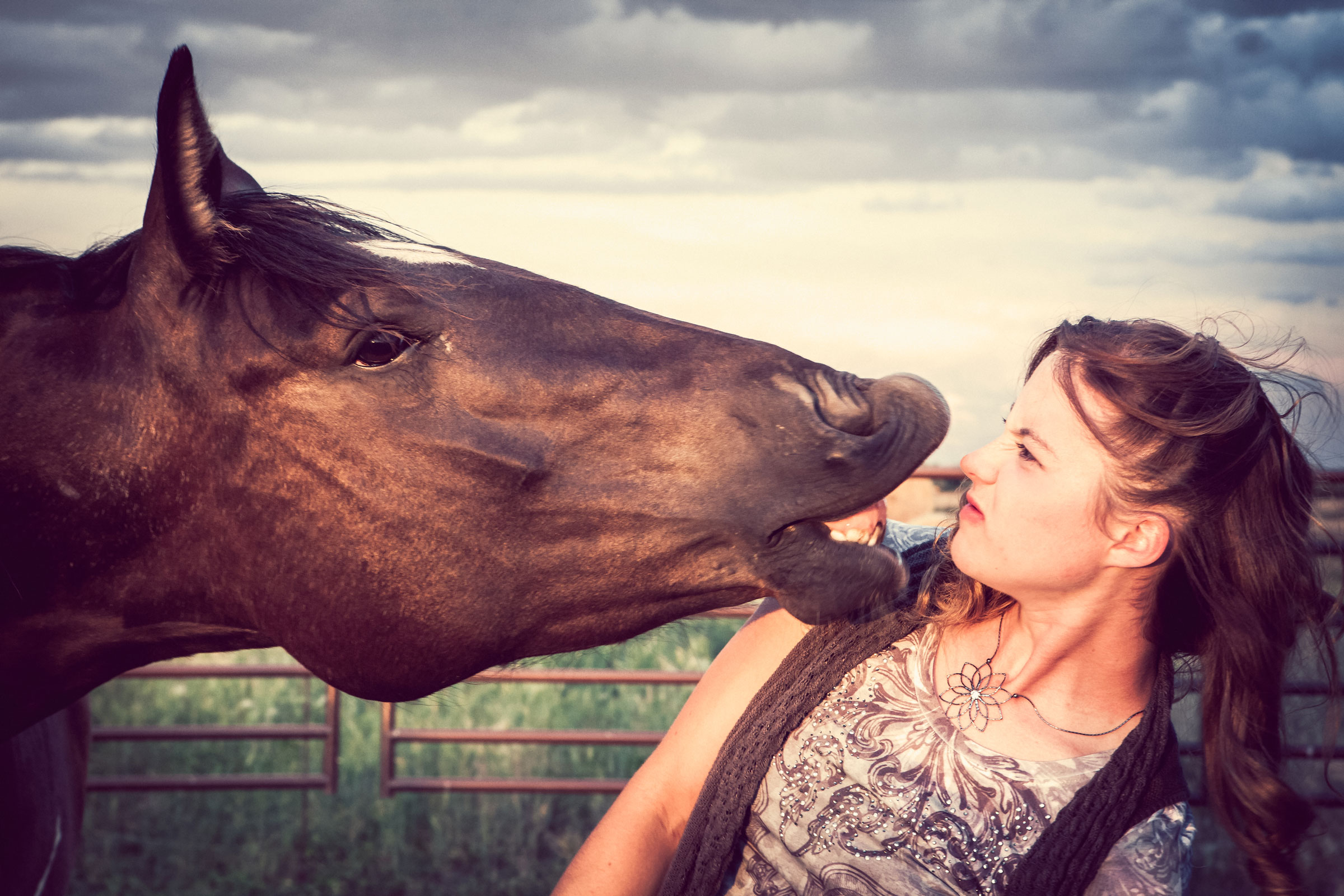
Efficient digestive health starts with the teeth, because a horse must grind feed effectively to present it to the digestive tract for maximum nutrient absorption.
As horses age, their teeth continue to erupt from the sinuses to accommodate normal wear of about 3-4 mm a year. By the time the horse is in its 20s, its teeth assume a more forward angle and appear more elongated. If a horse has not received regular dental care, he’s likely to have sharp hooks and points along the molars that cut into his cheeks and tongue, making it uncomfortable to eat. Many aged horses have loose teeth or they lose teeth, and/or they develop a wave mouth that makes it difficult to properly masticate the feed. Once the tooth crown wears out, the horse’s teeth are down to nubbins.
It is common to see quidding from an old horse—dropping of large wads of hay out of the mouth due to inefficient chewing. Watch to see how well your horse holds onto his feed when eating.
Incisors might be worn down so much that a horse has difficulty taking in grass in pasture. You can check the incisors by pulling your horse’s lips apart and looking. These individuals don’t fare well on pasture. so hay and/or concentrate supplements are needed to provide sufficient calories.
Clinical signs that you might observe that indicate mouth pain include weight loss, lack of appetite, behavioral changes, excess salivation, head shaking and discomfort in the bridle. An unpleasant smell to your horse’s breath often signals the presence of a tooth infection.
Gaps might develop in the gum line and become impacted with food to create infection and periodontal disease, which also leads to tooth loss and mouth pain. A more advanced form of painful periodontitis is called equine odontoclastic tooth resorption and hypercementosis (EOTRH) that is accompanied by resorption of tooth roots and overproduction of cementum and swelling around the tooth roots.
In a survey of horse owners about their geriatric horses, only 42% reported that their horses were experiencing dental problems, whereas veterinarian examinations of the horses revealed dental abnormalities in all of the horses.
With that in mind, you understand why horses should receive annual veterinary dental care throughout their lives in order to avoid later problems. Older horses should have dental checks by your veterinarian once or twice a year so problems can be addressed immediately to avoid development of unwanted dental changes and painful conditions.


